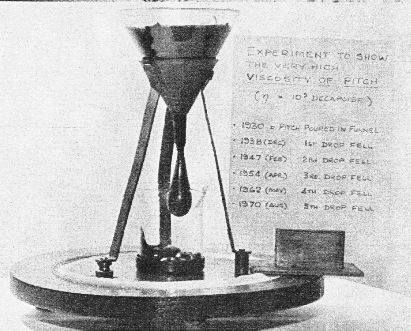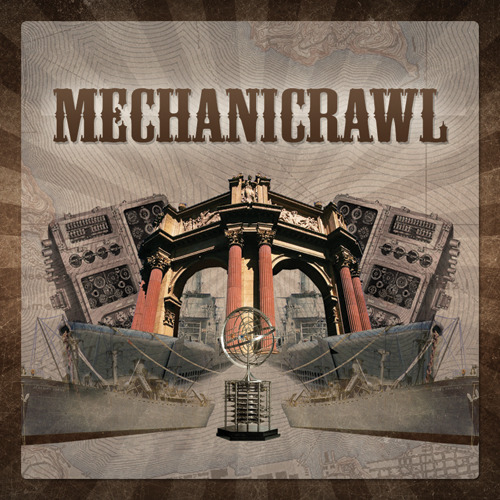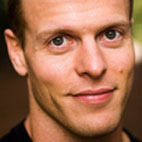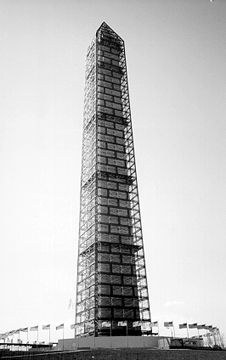Stewart Brand's Blog, page 97
September 26, 2011
Slow Science
When it comes to society's propensity for compromisingly short-term thinking, not even the scientific community is immune. A recent post on John Horgan's blog at Scientific American discussed a few of the trends responsible for the hastiness (and resulting shoddiness) of too much of our scientific activity. Among the trends is an overemphasis on 'popular' research topics, which statistician John Ioaniddis has shown leads to more inaccurate publications.
The likelihood that a claim will hold up, he argues, is inversely proportional to the initial attention that it gets from other scientists and the media. Large, fast-moving, "hot" fields, which can yield large financial payoffs, tend to have the worst records.
Thankfully, the primary subject of Horgan's post is not fast-paced failure, but an interesting effort to promote slower, better science. A group of scientists based in Germany have published "The Slow Science Manifesto," which praises the essential nature of "accelerated science of the early 21st century" but scolds those who demand that scientists constantly produce research with immediate practical application and clear meaning and intention. "Science needs time," they assert, "to think."
Science needs time to read, and time to fail. Science does not always know what it might be at right now. Science develops unsteadily, with jerky moves and unpredictable leaps forward—at the same time, however, it creeps about on a very slow time scale, for which there must be room and to which justice must be done.
The Manifesto concludes: "We cannot continuously tell you what our science means; what it will be good for; because we simply don't know yet. Science needs time." This statement corresponds neatly to a sentence from a chapter (titled, not incidentally, "Slow Science") in Stewart Brand's book The Clock of the Long Now: "Rigorously collected old data keeps finding new uses." Brand proposes that the Long Now Library could help facilitate the kinds of long-term projects that produce large useful data sets by helping scientists overcome the obstacles that stand in the way of such endeavors. Perhaps the authors of The Slow Science Manifesto would agree with his analysis:
…in light of their great accumulative value, why are long-term scientific studies so rare? Well, (1) they're not about proving or disproving hypotheses, the coin of the scientific realm; (2) they don't generate quick papers, the coin of a scientific career; (3) they bear no relation to scientific fashion, where the excitement is; (4) they're not subject to money-making patent or copyright; (5) the few that exist usually die when their primary researcher dies; (6) they're extremely difficult to maintain funding for; and (7) ever growing archives are an expensive hassle to service and keep accessible.
The Long Now Foundation has, in fact, already had the opportunity to support a long-term scientific project. In 02008 the Nevada System of Higher Education received funding from the National Science Foundation to study climate change in the Great Basin. As part of the study they needed to install permanent climate monitoring stations over a wide range of elevation levels and ecosystem types, and the Long Now Foundation's property in Nevada provided some key locations for constructing stations. If the project overcomes the challenges and pressures that drove a group of frustrated scientists to publish their Slow Science Manifesto, it will one day become a valuable bank of 'rigorously collected old data,' and future scientists will continue to use and reuse it for purposes that, quite frankly, we've never even dreamed of.







September 21, 2011
Mechanicrawl 02011
This Saturday September 24th, Long Now brings back Mechanicrawl – a self-guided exploration of the mechanical marvels along San Francisco's North Shore. A single ticket – free to members of partner organizations – provides access to all the attractions and special demonstrations going on throughout the event, 10:00am – 5:00pm.
You can get your tickets online, either in advance or on the day of the Crawl.
It's an increasingly rare opportunity, not to mention an astounding sight, to behold the steam engines of the SS Jeremiah O'Brien running, and they'll be fired up for the day. You can also geek out with Aaron Washington of the USS Pampanito crew over their Torpedo Data Computer, chat with their HAM radio club, drop by Long Now and meet some of the engineers on the 10,000 Year Clock as they demonstrate some of our prototypes, and catch one of the SF Maritime Park's guided tours of the Balclutha, a square-rigged sailing ship docked at the Hyde Street Pier… before lunch!
There's tons to do, check out www.mechanicrawl.org for details and ticket info.
Feel free to wander as you'd like between all the different attractions listed on the site, but take a peek at the Demos tab to see the scheduled activities you may want to join in on as well.
We've created a public layer in Google Maps that you can see on your smartphone to have all the locations and details at your fingertips during the event and you can follow Mechanicrawl on Twitter (@Mechanicrawl) for updates and reminders.
Come spend the day in the sun (oh, and below-decks) with us!







September 16, 2011
Timothy Ferriss, "Accelerated Learning in Accelerated Times"
Learning to learn fast
A Summary by Stewart Brand
To acquire "the meta-skill of acquiring skills," Ferriss recommends approaching any subject with some contrarian analysis: "What if I try the opposite of best practices?" Some conventional wisdom—"children learn languages faster than adults" (no they don't)—can be discarded. Some conventional techniques can be accelerated radically. For instance, don't study Italian in class for a year before your big Italy trip; just book your flight a week early and spend that week cramming the language where it's spoken. You can be fluent in any language with mastery of just 1,200 words.
That's what Ferriss calls the "minimum effective dose" for learning a language. The equivalent with any skill or goal is worth identifying. A regular 5 minutes of kettlebell swinging can tone the body rapidly; 30 grams of protein within 30 minutes of waking makes your slow-carb diet effective; just 20,000 "early evangelists" for your book in its first 2 weeks guarantees it becomes a best seller.
With any skill, "solve for extremes and anomalies." Look at who's best and how they do it, but especially look for those who are surprisingly good—the wispy girl who can deadlift 405 pounds—because they're doing it with technique rather than genes, and technique is learnable.
How do you manage the self-discipline to bear down on learning a skill? Ferriss suggests you begin by treating your new regime as a trial (vowing permanence can be discouraging)— give it 2 weeks or 5 serious sessions. By that point early rewards from the discipline will keep you going. You have to measure to detect the rewards ("What gets measured gets managed"–Peter Drucker), and score-keeping lets you make your progress a competitive game with others—which becomes its own motivation. Make public bets about your specific goals, where you'll pay painfully if you fail. "Loss aversion" is a surprisingly powerful incentive.
You can get profound effects in an amazingly short time, Ferriss concluded. "Doing the unthinkable is easier than you think."
PS: A collection of all of these summaries of the SALT talks is available on the Kindle for $3. Foreword by Brian Eno.
Other media from this Seminar will be posted here.







The Long Slow Make
The World Maker Faire opens for the second time this weekend – the 17th and 18th – in Queens at the New York Hall of Science. Maker Faire is organized by O'Reilly Media as a celebration of the spirit that's been kindled by their Make Magazine.
O'Reilly Co-founder Dale Dougherty sat down recently with New Yorker, blogger and maker, Anil Dash to discuss the DIY movement and 'making' as a cultural force.
Anil Dash provided his perspective on the social context of making, the maker movement, and what he calls "the long slow make." In this conversation, Anil characterizes the "Long Slow Make" as a persistent, flexible, and forward-looking ethos exemplified in the Washington Monument, NASA, cancer research, and New York's 2nd Avenue Subway.







September 15, 2011
Long Now Media Update
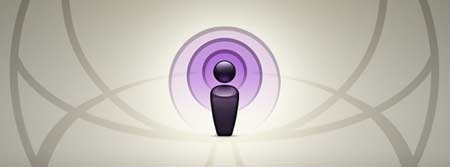
LISTEN
(downloads tab)
Timothy Ferriss' "Accelerated Learning in Accelerated Times"
There is new media available from our monthly series, the Seminars About Long-term Thinking. Stewart Brand's summaries and audio downloads or podcasts of the talks are free to the public; Long Now members can view HD video of the Seminars and comment on them.







September 13, 2011
A Sort-of-Natural History Museum
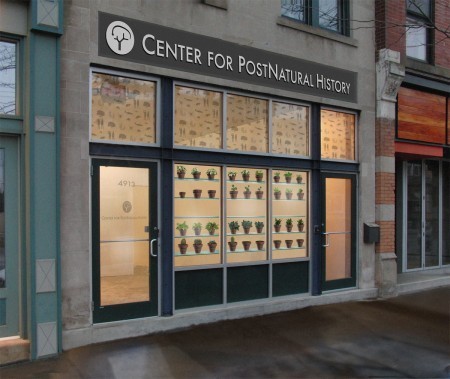
Brought to our attention by BoingBoing, the Center for PostNatural History specializes in specimens that are unlikely to be on display at, say, the American Museum of Natural History. As its name implies, the Center features organisms that are 'unnatural,' in that they were produced or altered by human activity. If we are, as some have suggested, entering a new epoch where the earth is sufficiently affected by humans so as to elicit the name 'Anthropocene,' then this museum could be the first of many to exhibit its characteristic life-forms. As its website explains,
The Center for PostNatural History is dedicated to the advancement of knowledge relating to the complex interplay between culture, nature and biotechnology. The PostNatural refers to living organisms that have been altered through processes such as selective breeding or genetic engineering. The mission of the Center for PostNatural History is to acquire, interpret and provide access to a collection of living, preserved and documented organisms of postnatural origin.
Every organism in an ecosystem, of course, exists in a network of constantly interacting relationships, so the idea that the effects of our species on other organisms are somehow 'unnatural' is debatable. But the idea of the "PostNatural" dovetails nicely with Bill McKibben's "End of Nature," referring not to a true absence of nature, but to a world in which human influence reaches ever more deeply into the biology of our planet.
And the nature of that influence is not really clear – what will be its long-term effects? How will people choose to utilize biotechnology? At the very least we can take notes as we go. Given that the vast majority of the species on our planet are not yet described by scientists, it is encouraging that the goals of the Center for PostNatural History include "the maintenance of a unique catalog of living, preserved and documented specimens of postnatural origin."







September 8, 2011
The Archive Team
One of our favorite rogue digital archivists, Jason Scott, has just posted a video of his talk at DefCon 19 about The Archive Team exploits. This is perhaps the most eloquent (and freely peppered with profanity) explanations of the problems inherent with preserving our digital cultural heritage. He also describes in a fair amount of detail what he and The Archive Team have been doing to help remedy the problem.
I am going to take a moment here and say that THIS is what I was talking about a few weeks ago. Jason Scott and The Archive Team exemplify the type of community activity that we need to be happening in order to save our shi.. stuff.







September 1, 2011
Timely Facts
Time exists, but that's only the first of ten things Cosmic Variance wants to be sure you know on the subject.
The most common noun in the English language describes a rather elusive concept and after the Setting Time Aright conference brought together "leading researchers across a wide range of fields within physics and cosmology, as well as from computer science, complex systems, biology, philosophy, and psychology," to talk about it, organizer Sean Carroll of Caltech rounded up the best takeaways and posted them for our edification:
Ten Things Everyone Should Know About Time







August 25, 2011
Charles Stross: Network Security in the Medium Term, 2061-2561 AD
Earlier this month author Charles Stross gave a lecture in San Francisco for the USENIX Security Symposium. He called his talk "Network Security in the Medium Term, 2061-2561 AD" and in it he took the concept far beyond keeping your email password private or your WiFi from being hacked.
Network security, according to Stross, will slowly work its way down to a basic need for everyone until it resembles the right to personal safety.
With increasingly pervasive networked sensors, knowledgeable genetic tests, and falling data storage costs, our online identities become more and more just our identities. Trade-offs and double-edged swords abound:
Is losing your genomic privacy an excessive price to pay for surviving cancer and evading plagues?
Is compromising your sensory privacy through lifelogging a reasonable price to pay for preventing malicious impersonation and apprehending criminals?
Is letting your insurance company know exactly how you steer and hit the gas and brake pedals, and where you drive, an acceptable price to pay for cheaper insurance?
But the value in storing and selectively sharing this data is there, as anyone who's searched for an old email to absolve themselves of some minor (or not so minor) blame can attest. A short story, Nanolaw with Daughter, by Paul Ford hints at this same issue:
Then would come the game. Cameras in the phone of every parent. Sensors on the goals; sensors in the ref's whistle; in the ball; in the lamps that light the field. Yellow cards, goals, offsides, all recorded from many angles and tagged with time, location, temperature, whether for the memories or to limit liability—the motion of 22 bobbing ponytails transformed into lines of light.
And so, if one is compelled to record as much of their life as possible, even just as a means of refuting those who would accuse them, network security becomes a highly personal long-term archiving project:
But some forms of personal data – medical records, for example, or land title deeds – need to remain accessible over periods of decades to centuries. Lifelogs will be similar; if you want at age ninety to recall events from age nine, then a stable platform for storing your memory is essential, and it needs to be one that isn't trivially crackable in less than eighty-one years and counting.
Your very assertion of who you are will become dependent on the reliable and secure functioning of a vast infrastructure: "Robustness and durability are going to be at a premium in the future," Stross emphasizes.
You can view video of the talk or read the full text.







August 19, 2011
Long Now on Through the Wormhole with Morgan Freeman
 Through the Wormhole with Morgan Freeman is a show on Discovery's Science Channel that features cosmological and metaphysical questions about science and the universe.
Through the Wormhole with Morgan Freeman is a show on Discovery's Science Channel that features cosmological and metaphysical questions about science and the universe.
Mr. Freeman, as it turns out, is quite the geek.
An episode from the show's second season recently asked, "Can We Live Forever?" Well known scientists such as Michio Kaku and Aubrey de Grey provided perspective on the challenges and research underlying the the science of human life extension. (Coincidentally, a newly announced DARPA research initiative on the subject, called Biochronicity, was mentioned on Long Views just last month.)
Also featured in the discussion was Long Now Executive Director Alexander Rose. You can see a clip of his segment below:







Stewart Brand's Blog
- Stewart Brand's profile
- 291 followers


